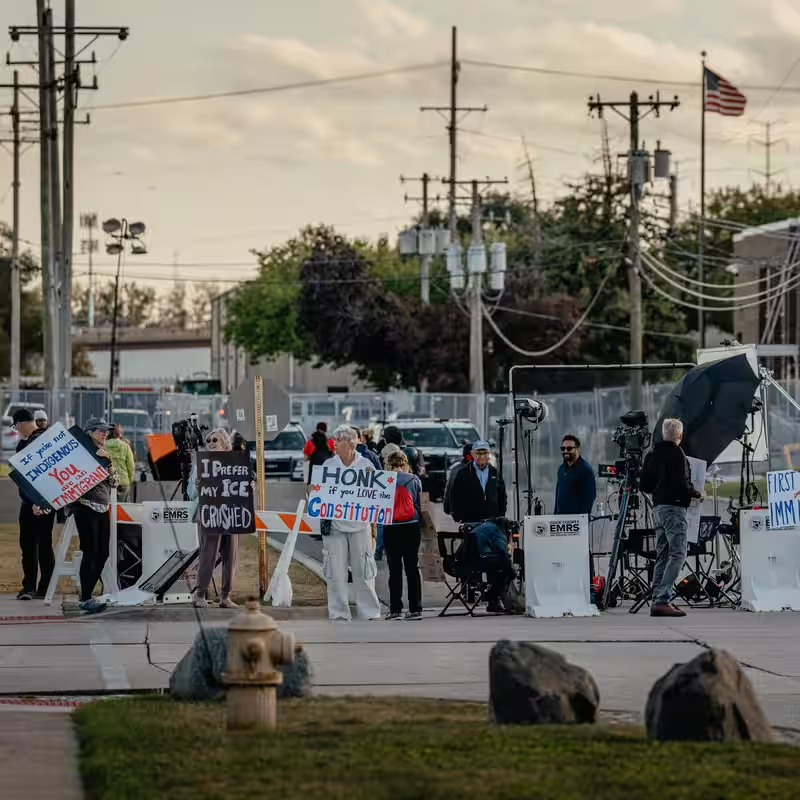Table of Contents
- Appeals Court Upholds Block on National Guard Deployment
- Why Did Trump Want Troops in Chicago?
- The Legal Battle: Insurrection Act vs. Judicial Oversight
- Who Are the Judges Behind the Ruling?
- Illinois and Chicago Officials React
- What Happens Next?
- Sources
National Guard Deployment Blocked—Again
In a major legal setback for the Trump administration, a federal appeals court has upheld a lower court’s block on the deployment of National Guard troops to the Chicago area. The ruling, issued Thursday by the U.S. Court of Appeals for the Seventh Circuit, reinforces a temporary injunction first granted by Judge April M. Perry on October 8, 2025.
At the heart of the decision is a blunt but powerful statement from the three-judge panel: “Political opposition is not rebellion.” The phrase has quickly become a rallying point for critics who argue the White House is overreaching in its response to immigration protests.
Why Did Trump Want Troops in Chicago?
The Trump administration cited escalating protests outside an Immigration and Customs Enforcement (ICE) processing center in Broadview, Illinois, as justification for sending in the National Guard. In an October 4 memo, the White House claimed that “coordinated assault by violent groups” had endangered federal officers and facilities.
However, Judge Perry and now the Seventh Circuit found those claims unsubstantiated. “The facts do not justify the president’s actions in Illinois,” the appellate panel wrote, noting that protest activity—while occasionally heated—did not meet the legal threshold of “rebellion or danger of rebellion,” which is required under the statute the administration invoked.
The Legal Battle: Insurrection Act vs. Judicial Oversight
The Trump team leaned heavily on a 19th-century legal precedent and a broad interpretation of federal statutes to justify military deployment on domestic soil. But the appeals court rejected the argument that the judiciary couldn’t review such decisions, calling the 1827 Supreme Court case referenced by the government “starkly different in circumstance.”
Crucially, the judges emphasized that the president is not “the sole judge” of whether conditions warrant troop deployment. This reaffirms a core principle of checks and balances in U.S. governance.
Who Are the Judges Behind the Ruling?
The unanimous decision came from a politically diverse panel:
- Ilana Rovner – Appointed by President George H.W. Bush
- David Hamilton – Appointed by President Barack Obama
- Amy St. Eve – Appointed by President Donald J. Trump
The inclusion of a Trump appointee in the unanimous ruling adds weight to the court’s conclusion and undercuts claims of partisan bias.
Illinois and Chicago Officials React
State and local leaders have consistently opposed the idea of military presence in Chicago’s streets. They argue that deploying troops could inflame tensions rather than restore order.
“Bringing in the military is likely to lead to civil unrest,” Judge Perry wrote in her original ruling—a sentiment echoed by Illinois Governor J.B. Pritzker and Chicago Mayor Brandon Johnson, who called the proposal “dangerous and unnecessary.”
Approximately 500 National Guard members from Illinois and Texas have already been activated in the region, though they are currently limited to “planning and training” and are not engaged in operational duties.
What Happens Next?
This is not the final word. The Trump administration has signaled it may appeal to the U.S. Supreme Court. Alternatively, President Trump could invoke the Insurrection Act—a more sweeping authority that would allow him to bypass current court orders, though such a move would almost certainly trigger fresh lawsuits.
For now, however, the streets of Broadview remain free of military personnel, and the principle that peaceful (even passionate) dissent is protected under the Constitution stands reinforced.
Sources
The New York Times: Appeals Court Maintains Block on Trump’s Troop Deployment to Illinois




